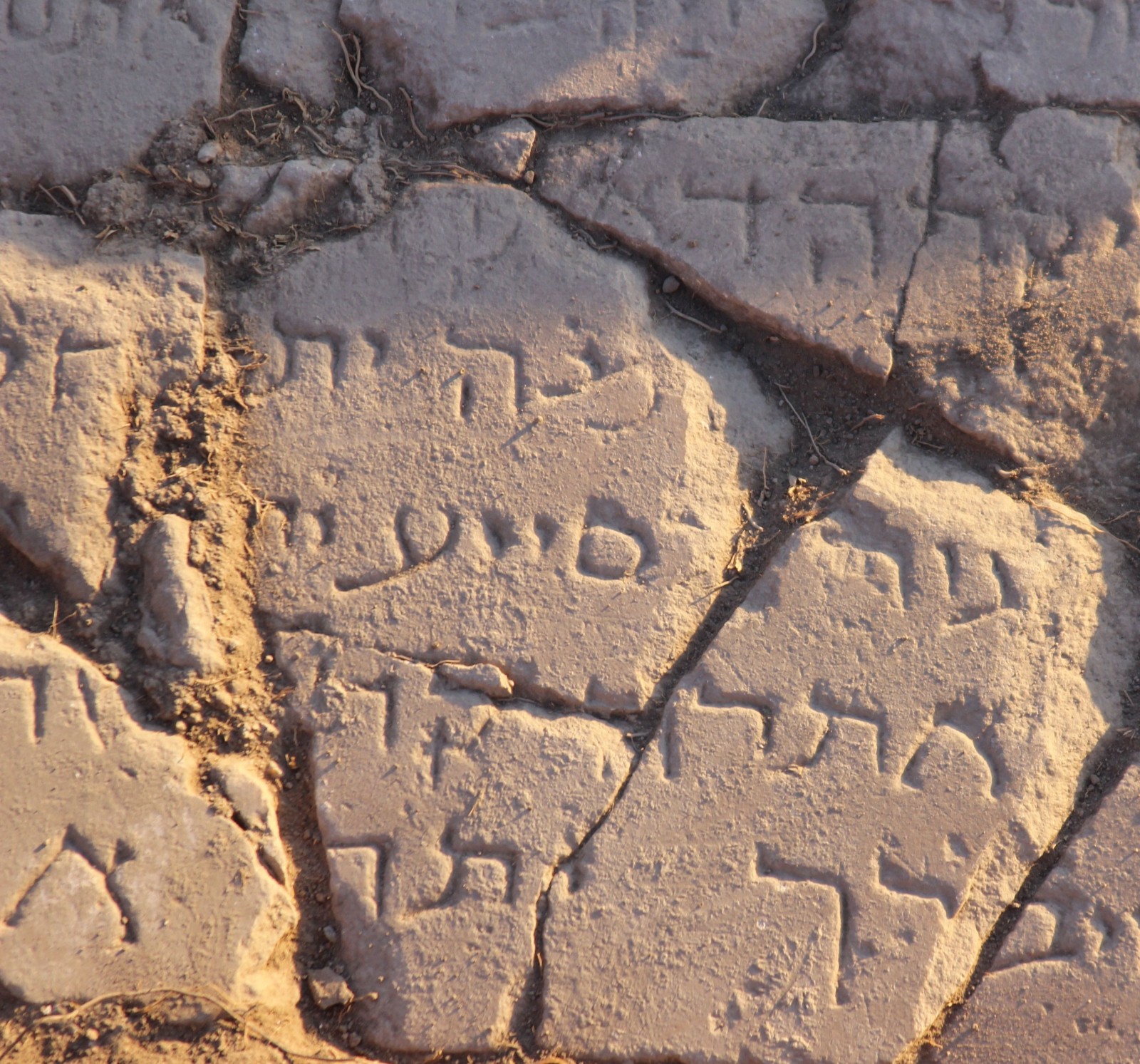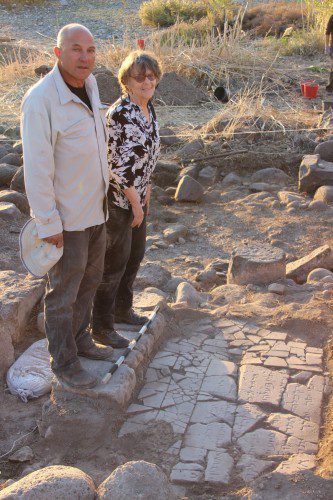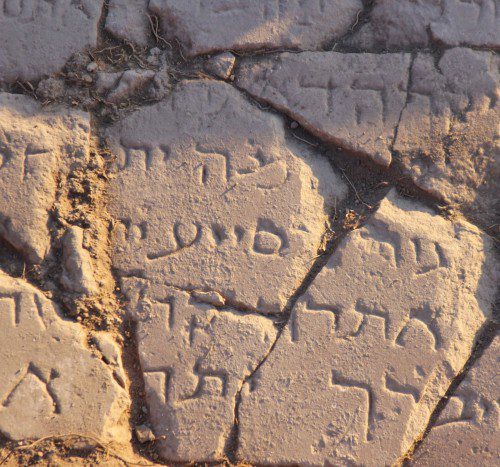
Ancient Marble Slab Discovered Due To Low Water Levels at Kinneret
Archaeologists from Haifa University discovered a large marble slab with Hebrew writing, on Wednesday, December 16. The slab has been dated to approximately 500 A.D. and was found at the site of a 1,500 year-old village, now considered to be the Biblical Kursi.

Dr. Haim Cohen (Left) and Professor Michal Artzy (Right) standing next to their discovery. Courtesy of the University of Haifa
The discovery was made on the northeastern shore of the Sea of Galilee (Kinneret), in the vicinity of the Kursi National Park.
“This is the first indication that there was a Jewish village on this spot” said Professor Michal Artzy, who manages the archaeological dig for the Haifa University.
According to the Haifa University Department of Archaeology, the site was made accessible only recently, with the decline of the Kinneret sea level.
“The marble slab was found at the entrance to an inner chamber of what seems to be an ancient synagogue, and is the only inscribed slab of this kind ever found in Israel,” said Professor Artzy.
“All other inscriptions found in Israel are made of mosaic and contain at best a few Hebrew words. This is the only one ever found etched in marble and containing such elaborate phrasing,” explained Artzy.
The marble itself has been identified as non-native to ancient Judea and Galilee and is therefore assumed by the archaeologists to have been commissioned from Greece, suggesting that the village that existed there was a thriving community.
Haifa University experts are currently working on deciphering the scripture on the slab which they said is in Aramaic but written in Hebrew letters. So far, two words have been positively identified, “Amen” and “Marmaria.”
